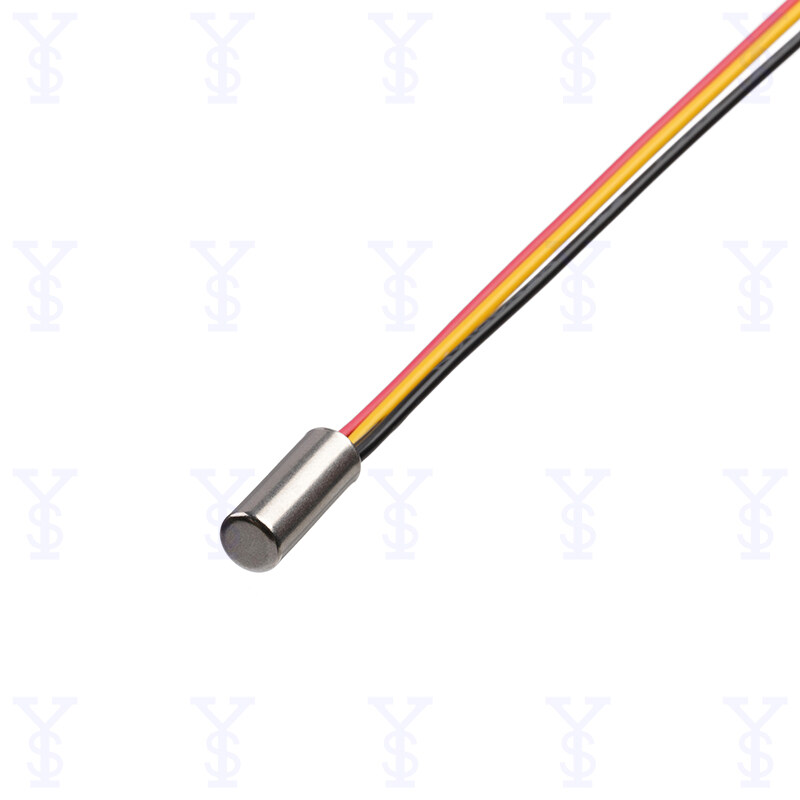E-Mail-Formatfehler
emailCannotEmpty
emailDoesExist
pwdLetterLimtTip
inconsistentPwd
pwdLetterLimtTip
inconsistentPwd


NTC Temperature Sensors: Unveiling the Magic Behind Temperature Measurement
Temperature sensors play a crucial role in various industries and applications, helping professionals monitor and control temperature levels accurately. Among the many options available, NTC (Negative Temperature Coefficient) temperature sensors have gained significant popularity due to their reliability and precision. In this article, we will delve into the working principle, applications, and advantages of NTC temperature sensors, shedding light on this remarkable technology.
1. What is an NTC Temperature Sensor:
NTC temperature sensors are based on the principle of electrical resistance variation concerning temperature change. Unlike Positive Temperature Coefficient (PTC) sensors, where resistance increases with temperature rise, NTC sensors exhibit an inverse relationship; resistance decreases as the temperature increases. This characteristic makes NTC sensors exceptionally suitable for various temperature sensing applications across industries.
2. Principle of Operation:
NTC temperature sensors employ a thermistor, a term derived from two words: thermal and resistor. A thermistor is a type of resistive device whose resistance changes predictably with temperature. This variation in resistance is due to the physical properties of semiconducting materials used in NTC sensors. As temperature increases, the electrical conductivity of these materials enhances, leading to a decrease in resistance. By measuring the change in resistance, accurate temperature readings can be obtained.
3. Key Advantages of NTC Temperature Sensors:
3.1 High Accuracy: NTC temperature sensors offer exceptional accuracy, often within ±0.1°C, making them ideal for critical applications that require precise temperature control.
3.2 Wide Temperature Range: These sensors exhibit a broad temperature range, covering temperatures from -50°C to +150°C, enabling their usage in diverse environments and industries.
3.3 Rapid Response Time: Due to their small size and high thermal sensitivity, NTC temperature sensors respond rapidly to temperature changes, providing real-time measurements.
3.4 Cost-effective Solution: NTC sensors are relatively inexpensive compared to other temperature sensing technologies, making them a cost-effective choice for applications where multiple sensors are required.
3.5 Easy Integration: With their compact size and compatibility with various electronic systems, NTC sensors can be easily integrated into existing setups, simplifying installation processes.
4. Applications of NTC Temperature Sensors:
4.1 HVAC Systems: NTC temperature sensors are extensively used in heating, ventilation, and air conditioning (HVAC) systems to measure and control room temperature, enabling comfortable and energy-efficient environments.
4.2 Industrial Automation: In industrial processes that require precise temperature control, NTC sensors play a vital role in monitoring temperature levels within machinery, ensuring optimal operating conditions and preventing potential damage.
4.3 Medical Equipment: NTC sensors find application in medical devices such as temperature probes, infusion pumps, and incubators, ensuring accurate patient monitoring and temperature regulation in healthcare settings.
4.4 Automotive Industry: NTC temperature sensors are integral components in automotive engines, allowing continuous temperature monitoring to prevent overheating or freezing, optimizing engine performance, and increasing vehicle safety.
4.5 Consumer Electronics: NTC sensors are utilized in various consumer electronic devices such as smartphones, laptops, and refrigerators, providing temperature control for efficient operation and preventing damage due to excessive heat.

Conclusion
NTC temperature sensors are remarkable devices, offering high accuracy, rapid response time, and cost-effective temperature monitoring solutions across a wide range of applications. With their reliability, precision, and ease of integration, these sensors have become indispensable in industries ranging from healthcare to automotive and everything in between. As technology continues to evolve, NTC temperature sensors will continue to play a crucial role in ensuring optimal temperature control and enhancing the efficiency and safety of various systems.

